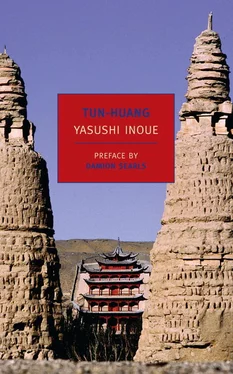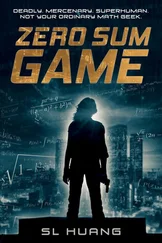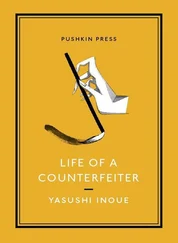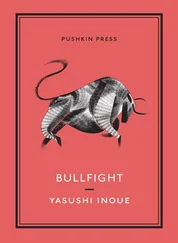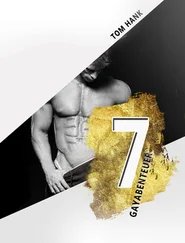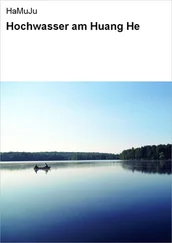On the other hand, there was something genuine and single-minded about him. Hsing-te liked Yen-hui’s smile. His loose skin would crease slowly, and gradually the joy in his heart would reach his eyes and mouth. It reminded Hsing-te of the smile of an innocent child.
Hsing-te’s liking for Yen-hui had led him to agree to Yen-hui’s plan so that the joy would be evident on his face again.
Hsing-te returned to headquarters and spoke to Wang-li about the matter, and Wang-li quickly replied. “You should do it. I don’t understand anything about the project, but if it’s nothing harmful, go ahead and help him.”
“But even if we try, I couldn’t do it alone. I would need several people with quite a bit of education to help out.”
“If that’s the case, why don’t you get some people and have them work with you?”
“I think such people are only found in Hsing-ch ing,” Hsing-te said.
“Then go to Hsing-ch’ing and get them.” Wang-li spoke as if this were a simple matter.
It was not easy to get to Hsing-ch’ing, but Hsing-te knew several people there who were capable of translating Chinese sutras into Hsi-hsia. He could think of several such men even now. They were all Chinese who had worked with him on the Hsi-hsia dictionary.
At the beginning of May, Hsing-te prepared to leave for Hsing-ch’ing. He also wrote several documents to present in the names of Yen-hui and Wang-li. However, a definite departure date had not yet been set. Hsing-te had to wait until troops began to travel east from Kua-chou.
One day in the middle of May, Hsing-te was summoned by Yen-hui. When he arrived at the palace, Yen-hui told him, “There is a Sha-chou trader named Wei-ch’ih Kuang. He says he’s going to Hsing-ch’ing, so why not go with him?”
Hsing-te didn’t know what type of person Wei-ch’ih Kuang was, but he thought it rash for a man to take a caravan from Kua-chou to Hsing-ch’ing when the Hsi-hsia and the Turfans were at war. Nevertheless, Hsing-te decided he would at least meet the man. Yen-hui knew little about him.
Next day, Hsing-te went to visit Kuang in the hostel area by the South Gate. He was out when Hsing-te arrived at his inn, but learning that he would soon return, Hsing-te stood on the corner of a narrow, dirty alley and waited for him.
Kuang, who eventually appeared, was a tall, lanky, dark-complexioned young man with keen eyes. He seemed about thirty years of age. At first he had no idea why Hsing-te had come to see him, and he spoke guardedly. “You’re one of the occupation troops, aren’t you? What do you want with me?”
“I heard about you from the governor,” Hsing-te replied.
“I’m not afraid of the governor. I have a perfectly valid traveler’s permit. If you have some business with me, get it over with. I’m so busy, I haven’t time to think!”
It was an acrimonious greeting. Hsing-te realized that this was an impatient man, and so he quickly told him that he wanted to travel with his caravan to Hsing-ch’ing.
“Is this on Hsi-hsia army orders or the governor’s orders?” the young man asked.
“From both,” Hsing-te replied.
“It’s my policy not to have anyone travel with me. If your orders were from just one of them, either the Hsi-hsia army or the governor, I wouldn’t dream of taking you, but since they are from both, I suppose I can’t refuse. It’s a lot of trouble, but I’ll have to take you along. We’re leaving at dawn the day after tomorrow. Tomorrow night, get ready, and come here around the time the moon rises.”
Then Kuang added roughly that if Hsing-te traveled with his caravan he would have to accept all his orders. And he’d better be prepared to comply.
The next day Hsing-te went to Wang-li’s mansion to take leave of him. As soon as Wang-li saw him, he told Hsing-te that because of him he had had to give up enough weapons for twenty people. At first Hsing-te had no idea what he meant, but it slowly dawned on him that Kuang had come to Wang-li and demanded weapons for twenty men in return for taking Hsing-te with him.
“I liked that reckless young fellow. That’s why I agreed. You will be treated respectfully by them,” Wang-li said.
While he was out, Hsing-te went to see Yen-hui, and there, too, he found that Kuang had preceded him. In Yen-hui’s case, Kuang had not asked for arms, but had requested fifty camels instead, “for official business.”
Yen-hui had agreed and had gone through the proper channels to provide them. Yen-hui also spoke in the same vein as Wang-li. “You should be able to travel in comfort and take a back seat to no one. Kuang has fifty camels of his own, and since he has got an additional fifty for nothing, he should take very good care of you.”
But Hsing-te remembered Kuang’s belligerent look. No matter how much anyone paid Kuang, no one could erase the sharpness from his eyes.
That night Hsing-te, followed by two soldiers carrying his baggage, went to the appointed place. In a few moments Kuang appeared, took the baggage from the two men, and handed it to the camel drivers. He said curtly to Hsing-te, “Follow me,” and started to walk away. Hsing-te dismissed the two soldiers and followed Kuang, his shoes sinking into the desert sand as he walked. Although it was May, the bitter cold of the night air was piercing.
As he walked, Hsing-te wondered just where Kuang came from. His facial structure was different from the Chinese, the Uighurs, the Turfans, and other westerners whom Hsing-te had come across. Kuang spoke the local Chinese dialect. As they walked down the dark road along the city wall, Hsing-te could not check his curiosity and asked, “Where were you born?”
Kuang stopped, looked back and replied, “I am Wei-ch’ih Kuang.” He pronounced each word distinctly as though he were warning Hsing-te.
“I know your name. I just asked you what country you were born in.”
Kuang shouted harshly, “Fool! Don’t you understand when I say Wei-ch’ih? No one outside the Wei-ch’ih royal house of Khotan has that name. My father was a member of royalty!” He resumed walking. “The Wei-ch’ih dynasty lost their struggle for power with Li. Right now, Li is king of Khotan, but my family is different from that plebian family.”
If he were telling the truth, it meant his father was Khotanese, but Kuang did not resemble any other Khotanese Hsing-te had known.
“What country did your mother come from?” asked Hsing-te.
“My mother? My mother was from the famous Fan family of Sha-chou. My mother’s father had several Buddhist caves dug in the Ming-sha mountains.”
“What do you mean, ‘had Buddhist caves dug’?”
Kuang stopped walking, turned around, and suddenly grabbed Hsing-te’s collar. Slowly tightening his grasp, he shouted, “To have Buddhist caves dug in the Ming-sha mountains is not easy. Only a very prominent man or a very wealthy one could undertake such a project. Remember this!”
Hsing-te felt he was being choked. As he gasped for air, he was also roughly shaken. Hsing-te tried to cry out, but he could not speak. Then he was pulled off his feet and lifted into the air; the next instant he fell to the ground, landing on his back. It was a soft fall, just as if he had been thrown on straw, and he was not hurt at all.
Hsing-te brushed off the sand and slowly got up. Perhaps it was because he felt no pain, but Hsing-te felt no antagonism toward Kuang.
Hsing-te said nothing and quietly followed Kuang. According to what he had just said, Kuang had Khotan and Chinese blood. Hsing-te thought that since the western Chinese had intermarried with many native tribes, Kuang was probably a mixture of various nationalities through his mother, aside from his father’s background. If so, it was not strange that his features and physique were unique.
Читать дальше
